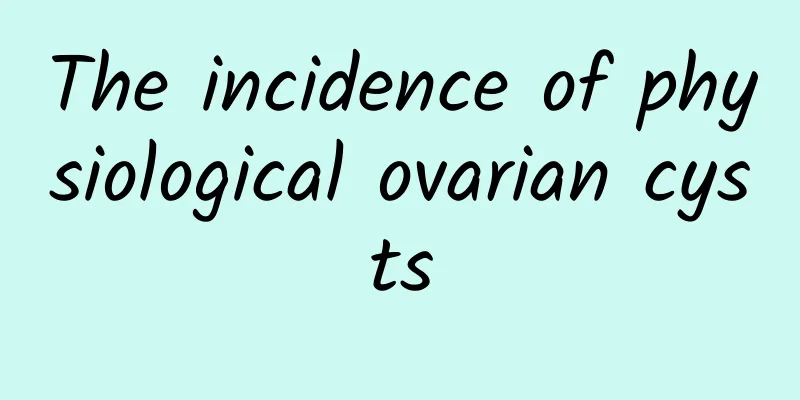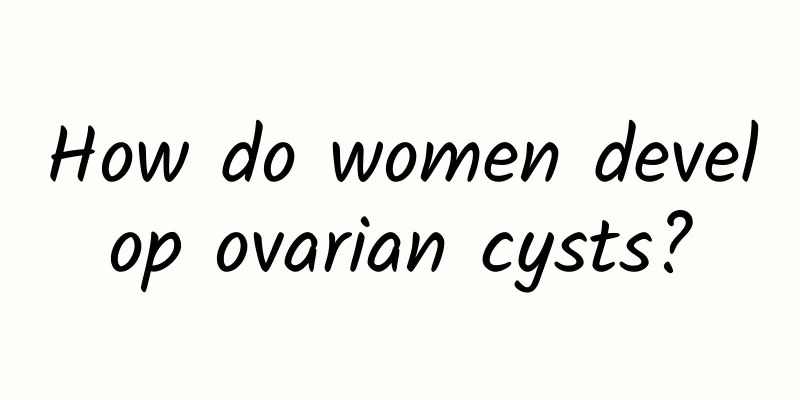The incidence of physiological ovarian cysts

|
The incidence of physiological ovarian cysts is high, especially in women of childbearing age. Most of them are functional cysts, which usually do not require special treatment and can be treated with regular follow-up. Treatment options include watchful waiting, drug therapy, and surgical treatment, depending on the size of the cyst, symptoms, and patient needs. 1. The cause of physiological ovarian cysts is mainly related to the female menstrual cycle. During ovulation, the follicle fails to rupture normally or the corpus luteum fails to be fully absorbed, resulting in fluid accumulation and formation of cysts. This type of cyst is mostly functional and usually related to fluctuations in hormone levels. It is common in women of childbearing age, especially those with irregular menstrual cycles. 2. Environmental factors may also affect the occurrence of physiological ovarian cysts. Lifestyle factors such as long-term stress, poor eating habits, lack of exercise, etc. may lead to endocrine disorders and increase the risk of cyst formation. Certain drugs such as ovulation-inducing drugs may also induce cysts. 3. Physiological ovarian cysts can be treated in a variety of ways. For small, asymptomatic cysts, regular ultrasound examinations are usually recommended to observe changes. If the cyst is large or causes discomfort, drug treatment may be considered, such as oral contraceptives to regulate hormone levels, or the use of traditional Chinese medicine. For cysts that persist or have severe symptoms, surgical treatment may be required, such as laparoscopic cystectomy or oophorectomy. 4. The key to preventing physiological ovarian cysts is to maintain a healthy lifestyle. A balanced diet, regular exercise, and reduced stress can help regulate endocrine and reduce the risk of cysts. Regular gynecological examinations can also detect and treat potential problems early. Although physiological ovarian cysts are common, most are benign and can be effectively controlled through reasonable treatment and lifestyle adjustments. It is recommended that women pay attention to their own health, have regular checkups, and seek medical treatment in a timely manner to deal with abnormal conditions to ensure the health of the reproductive system. |
<<: Can I have intravenous infusion when menopausal syndrome occurs?
>>: How much does the abortion process cost?
Recommend
What are the symptoms of uterine prolapse
Uterine prolapse does not happen for no reason. I...
How to treat cervicitis
Cervicitis may be caused by a variety of factors,...
What to do if pelvic fluid is 2.6 cm
Of course, you cannot ignore the occurrence of pe...
Do I need surgery for an ectopic pregnancy that lasts more than a month?
Ectopic pregnancy generally refers to ectopic pre...
How can patients with endometriosis self-diagnose?
Endometriosis is a common gynecological disease t...
How to care for cervical warts after surgery
How should I take care of cervical warts after su...
How much does cervical erosion surgery cost?
How much does cervical erosion surgery cost? I be...
There is a way to avoid hunchback. Start by exercising the rhomboid muscles.
"Humpback" is the most common bad postu...
Talk about the characteristics of painless abortion
Painless abortion is now very popular among peopl...
What should I do if I have abdominal pain during pregnancy due to adenomyosis?
What should I do if I have stomach pain during pr...
What are the main harmful manifestations of cervical hypertrophy?
Gynecological diseases are very harmful to women,...
Staying up late can cause abnormal leucorrhea
Staying up late may lead to abnormal vaginal disc...
To prevent falls, start with anti-aging! Do muscle endurance training + hip joint walking
Recently, there have been reports of many celebri...
What kind of anti-inflammatory injection is good for uterine fibroids? Is anti-inflammatory medicine effective for uterine fibroids?
What kind of anti-inflammatory injection is good ...
Specific description of the symptoms of cervical erosion
The symptoms of cervical erosion have a lot of im...









